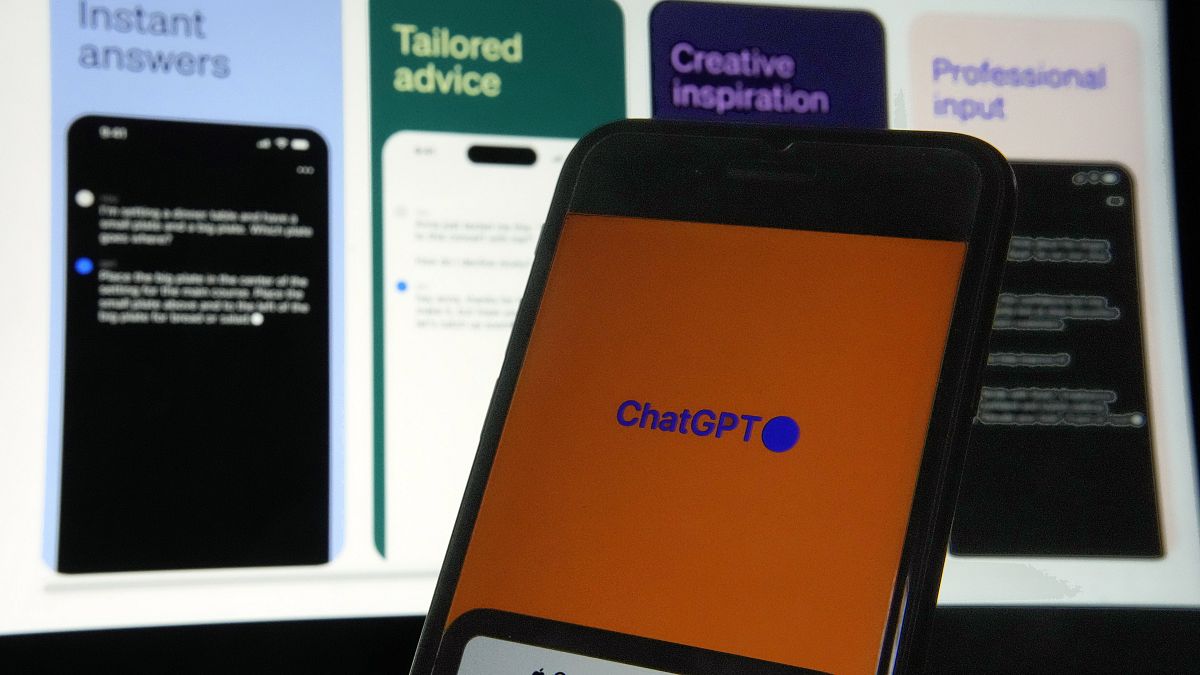As consumer groups call on authorities to urgently investigate generative AI, a new report from a Norwegian consumer organisation described the risks of AI technology.
Consumer groups from 13 European countries are urging national authorities to launch "urgent investigations" into generative artificial intelligence (AI).
The groups also call on governments to enforce existing legislation to protect consumers.
Generative AI is a type of artificial intelligence that can create text, images, video and other content that resembles content created by humans.
"Generative AI such as ChatGPT has opened up all kinds of possibilities for consumers, but there are serious concerns about how these systems might deceive, manipulate and harm people," said Ursula Pachl, the European Consumer Organisation (BEUC)'s deputy director general, in a statement.
"They can also be used to spread disinformation, perpetuate existing biases which amplify discrimination, or be used for fraud."
Since the AI app ChatGPT launched late last year, it has reportedly set the record for the fastest-growing user base and sparked more discussion about the speed of artificial intelligence's development and how to regulate it.
The statement from the 13 European consumer groups on Tuesday comes as Forbrukerrådet, a Norwegian consumer group and member of BEUC, published a new report into the risks associated with generative AI.
The report highlighted the threat of inaccurate output and using AI technology to manipulate consumers.
The report also covered concerns about security, privacy, automating human tasks and the environmental impact of AI.
“We call on safety, data and consumer protection authorities to start investigations now and not wait idly for all kinds of consumer harm to have happened before they take action," said Pachl.
The European Parliament agreed on their negotiating position on a wide-ranging Artificial Intelligence Act last week, endorsing a blanket ban on real-time AI-powered facial recognition tools and a ban on intrusive and discriminatory uses of the technology among other measures.
The AI Act was first proposed by the European Commission in 2021 and the EU hopes to wrap up negotiations by the end of the year. This would be the first comprehensive law regulating artificial intelligence.
"It is crucial that the EU makes this law as watertight as possible to protect consumers," said Pachl in a statement.
"All AI systems, including generative AI, need public scrutiny, and public authorities must reassert control over them."
Many experts, politicians and institutions have recently warned about the dangers of artificial intelligence.
UN Secretary-General Antonio Guterres said last week that there needed to be coordinated global action on the topic and endorsed setting up an international watchdog on artificial intelligence.
The European Data Protection Board has also created a task force on ChatGPT "to foster cooperation and to exchange information on possible enforcement actions conducted by data protection authorities."
ChatGPT creator Sam Altman even told US Congress that while he believes artificial intelligence will benefit humanity, it must be regulated.
A recent statement published by the Center for AI Safety, signed by AI experts and public figures, said that "mitigating the risk of extinction from AI should be a global priority alongside other societal-scale risks such as pandemics and nuclear war."



